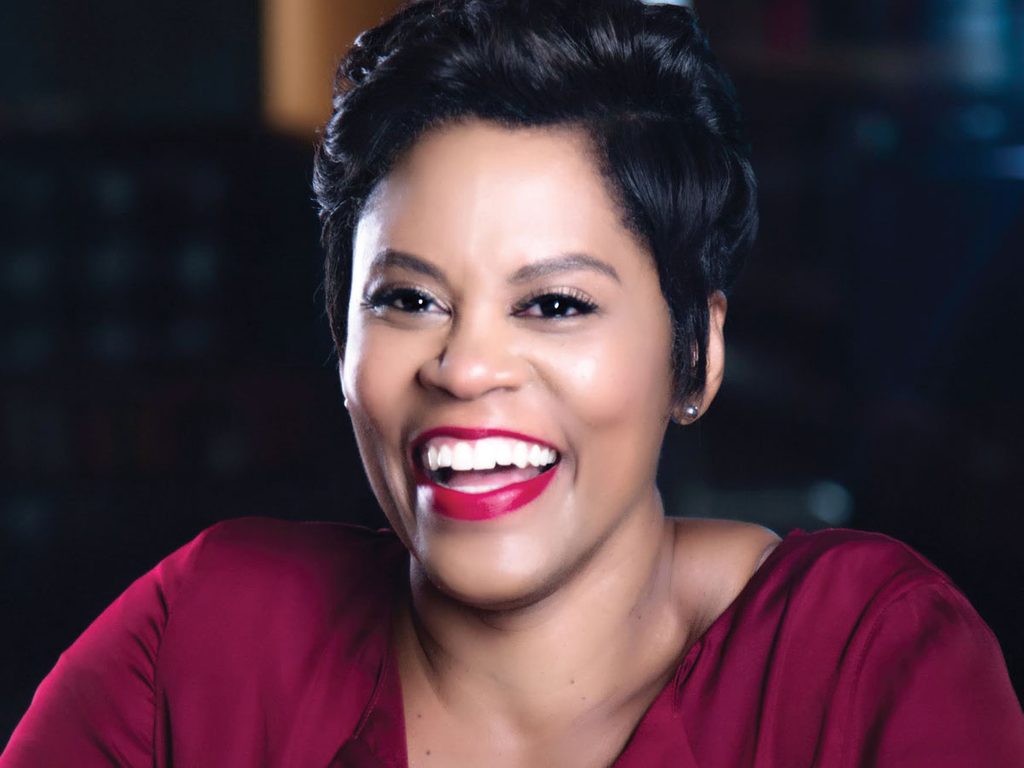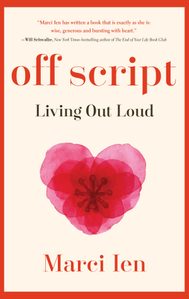‘There’s Growth in Discomfort’: Going Off Script With Marci Ien

The veteran broadcaster talks about her new book and using her voice when the world needs it most.
As the first Black woman to co-anchor a morning show in Canada, Marci Ien has always been a trailblazer. Five years ago, she moved from delivering news in a neutral, impartial way at Canada AM to joining another one of CTV’s flagship shows, The Social, where she was encouraged to share her opinions. In September, she announced a leave from the show to take a leap into politics and will be the Liberal candidate in an upcoming by-election in the riding of Toronto Centre (the seat that was held by former finance minister Bill Morneau).
During her career, Ien has embraced the full power of her voice. She calls out injustice, anti-Blackness and more, both on the air and off. At a time when many people are struggling privately with how to be true, kind and anti-racist in a tumultuous world, Ien is living those values in a very public way.
Her new book, Off Script: Living Out Loud, chronicles her hustle for professional excellence in the world of broadcast journalism, speaking truth to power and deciding to go off script in a big way, exactly when this world needs it most.

Ien says it best in the introduction to her book: “I tell other people’s stories for a living. That’s what reporters do. But now, I’m telling my own.”
Why did you decide to go “off script,” as you call it?
Professionally, I went off script about five years ago when I joined The Social. Some people were happy about it. Others said, ‘We liked you a lot better when you were on Canada AM,’ and I thought, What are you saying? Are you saying you liked it when I wasn’t as loud? That you liked it when I was neutral? Off script means me using my voice completely and embracing it.
How does it feel?
It was the absolute best thing. To have a microphone like the one that I have at The Social, to be able to share, as a Black woman in this country, my experiences as a journalist, as a mom, as a daughter, moving through society and navigating a career which was in mostly-white spaces, my God. This is exactly what I needed.
It’s not that it isn’t scary. But I believe in discomfort. I believe that there’s growth there.
(Related: Why It’s Important to Know What BIPOC Stands For)
At age 10, you joined the cast of a children’s series called Circle Square. I didn’t know you were a child star. You’ve been navigating what it means to be Black in a very public way your whole life. How do you feel about that today in 2020?
You know, [in the book] I talked about neutrality. You aren’t hurting anybody’s feelings when you’re on a kids’ show, and you’re not hurting anybody’s feelings when you’re a news anchor. People start to get upset and uncomfortable when you are on a talk show and a Black woman talking about race in this country, talking about systemic racism in particular.
Will I ever regret speaking out? Absolutely not. Has it brought threats? Yes. But will I continue? Absolutely.
Are there ways to go off-script safely?
There’s no safety net. I don’t have a safety net, I’m just putting this stuff out there.
We are living in a time where people are literally fighting for their lives. I am comfortable with being uncomfortable. That may not be for everybody. I can’t say that you’re going to be safe. But the point of the matter is, I’m not stopping. I can’t however, encourage people to do what they’re not comfortable with. I only know what I can do. But every little bit matters.
One story that really struck me in your book was about the youth from La Loche, Saskatchewan. Four people were killed during a school shooting in a Dene community in 2016. When you saw a news photo of a child wearing a Raptors cap, you leveraged your relationships, including with Raptors coach Masai Ujiri, and set some big things in motion, like Prime Minister Justin Trudeau playing basketball with students from La Loche. Can you give us an update on this initiative?
I shared in the book that the Prime Minister did go back. The school was rebuilt in many ways, the areas that had been shot up — the office and teachers’ area, the front door — that whole area was rebuilt, but also monies were allocated for a wellness program and other educational opportunities for the school community. [When Covid-19 hit] Masai and I partnered with Loblaw and flew care packages over to the families, making sure that people were eating properly.
This is family now. This isn’t going to stop. Just before Covid-19 happened, we had kids come to Toronto for a visit, as we have had every year. And Masai says as long as he is here, this program will continue. We’re resolved in that fact. And he has become a very good friend.
It’s incredibly inspiring to know you can do that in your spare time.
Well, it’s one of those things where I couldn’t sleep. This story would not leave me. It was a combination of being the daughter of an educator and it being this Indigenous school. Two things I deeply care about came together and I just could not rest.
Next: Black-Female-Owned Businesses to Support Now and Always




